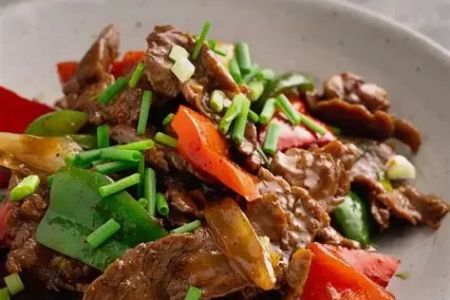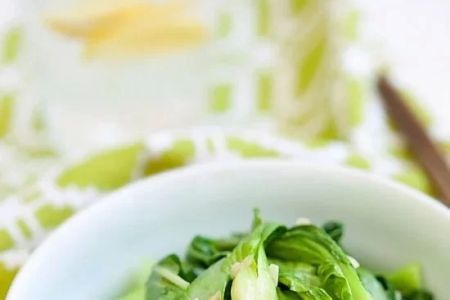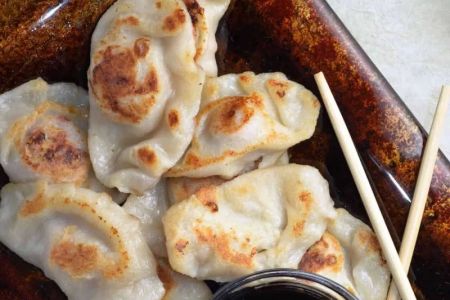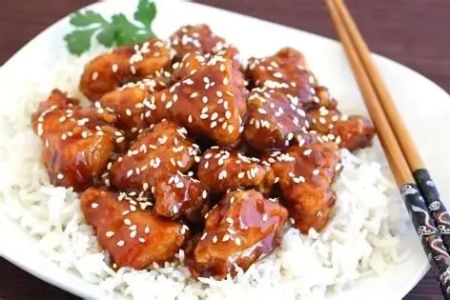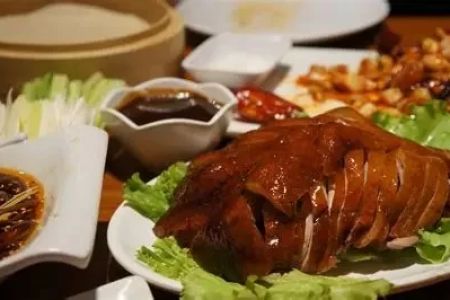- Popular Chinese Sauces in American Cuisine
- Sauce Characteristics and Culinary Uses
- How Chinese Sauces Influence American Dishes
- Tips for Choosing and Using Chinese Sauces
- Where to Find Authentic Chinese Sauces
Popular Chinese Sauces in American Cuisine
When it comes to Chinese culinary influence in American kitchens, a handful of sauces stand out for their popularity and versatility. These sauces are not only foundational in traditional Chinese cooking but have also become staples in American households and restaurants. The most popular Chinese sauces in American cuisine include soy sauce, hoisin sauce, oyster sauce, chili garlic sauce, and black bean sauce. Each one carries a unique flavor profile that enriches dishes ranging from simple stir-fries to complex marinades.
Take soy sauce, for example. It’s arguably the most recognized Chinese condiment worldwide and is valued for its salty umami richness. In the US, soy sauce transcends Chinese cooking and appears in fusion recipes, salad dressings, and dipping sauces. Similarly, hoisin sauce, known for its sweet and tangy notes, frequently appears in American-Chinese dishes such as Peking duck wraps or as a glaze on ribs, showing how Chinese sauces adapt well to American taste preferences.
Soy Sauce: The Umami Foundation
Soy sauce, made from fermented soybeans and wheat, forms the base of many Chinese dishes. Its deep, savory taste adds complexity to sauces, soups, and marinades. The popularity of soy sauce in American cuisine is also tied to the rise of Asian fusion cooking, where chefs experiment with combining Chinese flavors with local ingredients.
Hoisin Sauce: Sweet and Versatile
Hoisin sauce offers a thick, sweet, and slightly spicy flavor that makes it perfect for glazing meats or adding to stir-fried vegetables. Its ability to balance savory and sweet elements has made it a favorite beyond Chinese restaurants, appearing in American barbecue interpretations.
Oyster Sauce and Its Richness
Oyster sauce brings a rich, slightly sweet depth to dishes and is commonly used in vegetable stir-fries and beef dishes. In American kitchens, it’s prized for its ability to enhance umami without overpowering other ingredients.
Sauce Characteristics and Culinary Uses
Understanding the characteristics of each sauce helps home cooks and chefs alike use them more effectively. For instance, chili garlic sauce is known for its spicy kick combined with savory garlic flavor, making it ideal for those who want to add heat and aroma to dishes. Black bean sauce, with its fermented black beans, offers a smoky and salty taste, commonly used in more traditional Chinese recipes.
Each sauce’s texture, intensity, and sweetness or saltiness can dramatically change the flavor profile of a dish. For example, mixing soy sauce with a little sugar and garlic can mimic a popular marinade used for Chinese-style grilled chicken in many American-Chinese restaurants.
Chili Garlic Sauce: Adding Heat and Depth
Chili garlic sauce blends spicy chili peppers with the pungency of garlic, making it a popular choice for those seeking bold flavors. It works well as a condiment on noodles or rice dishes, as well as a marinade base.
Black Bean Sauce: Traditional and Flavorful
Made from fermented black soybeans, black bean sauce offers a salty and earthy profile. While less common in mainstream American cooking, it remains essential for authentic Chinese dishes such as black bean beef or steamed fish, appreciated by culinary enthusiasts.
How Chinese Sauces Influence American Dishes
The influence of Chinese sauces in American cuisine goes beyond just traditional Chinese restaurants. Many American chefs incorporate these sauces into their recipes to create fusion dishes that blend Eastern and Western flavors. For instance, hoisin sauce has found a new home in American barbecue culture, where it’s used as a base for ribs and burgers, offering a unique twist on classic comfort food.
A well-known case that captured public attention was when a famous American chef featured a stir-fry recipe on a popular cooking show, using oyster sauce as a secret ingredient to elevate a simple chicken dish. This example demonstrates how Chinese sauces have permeated mainstream cooking and can serve as culinary secrets to impress guests.
Furthermore, Chinese sauces often help reduce cooking time and complexity by providing ready-made layers of flavor, which appeals to busy home cooks looking for quick yet authentic tastes. This practical aspect has helped these sauces become household essentials in many American kitchens.
Tips for Choosing and Using Chinese Sauces
For those new to Chinese sauces, selecting the right sauce can be daunting. A practical tip is to start with the basics: a good quality soy sauce and hoisin sauce cover a wide range of dishes. Look for naturally brewed soy sauce for a richer flavor and avoid brands with excessive additives.
When using these sauces, balance is key. Chinese sauces are often salty or sweet, so adjusting quantities to suit your palate and the dish’s ingredients will yield the best results. Mixing sauces can also unlock new flavor combinations, such as combining oyster sauce with soy sauce for a more complex umami taste.
Experimentation is encouraged, but always taste as you go to avoid overpowering your dish. This approach not only enhances cooking skills but also deepens appreciation for Chinese culinary traditions.
Understanding Labels and Ingredients
Pay close attention to ingredient lists when shopping. Some sauces labeled “Chinese” may have modified recipes to cater to Western tastes, so reading labels helps maintain authenticity.
Storage and Shelf Life
Proper storage in a cool, dark place can prolong the shelf life of Chinese sauces. Some sauces, like chili garlic sauce, may require refrigeration after opening to preserve freshness.
Where to Find Authentic Chinese Sauces
Finding authentic Chinese sauces can enhance your cooking experience. Specialty Asian markets are reliable sources, but for those who prefer shopping online, visiting Chinese Food offers a curated selection of high-quality sauces suitable for all cooking levels. Whether you want to try oyster sauce from a trusted brand or explore lesser-known condiments like plum sauce or sesame paste, Chinese Food provides recommendations tailored to your needs.
Shopping through trusted platforms ensures you receive genuine products, which not only improve your dish’s flavor but also preserve the cultural integrity of Chinese cuisine. For those interested in exploring beyond the popular sauces, Chinese Food regularly updates its product listings and offers expert advice on pairing sauces with various dishes.
In conclusion, embracing popular Chinese sauces in American cuisine opens doors to a world of flavor and culinary creativity. Whether you are a novice cook or an experienced chef, understanding these sauces and how to use them can transform your cooking and impress family and friends alike.




